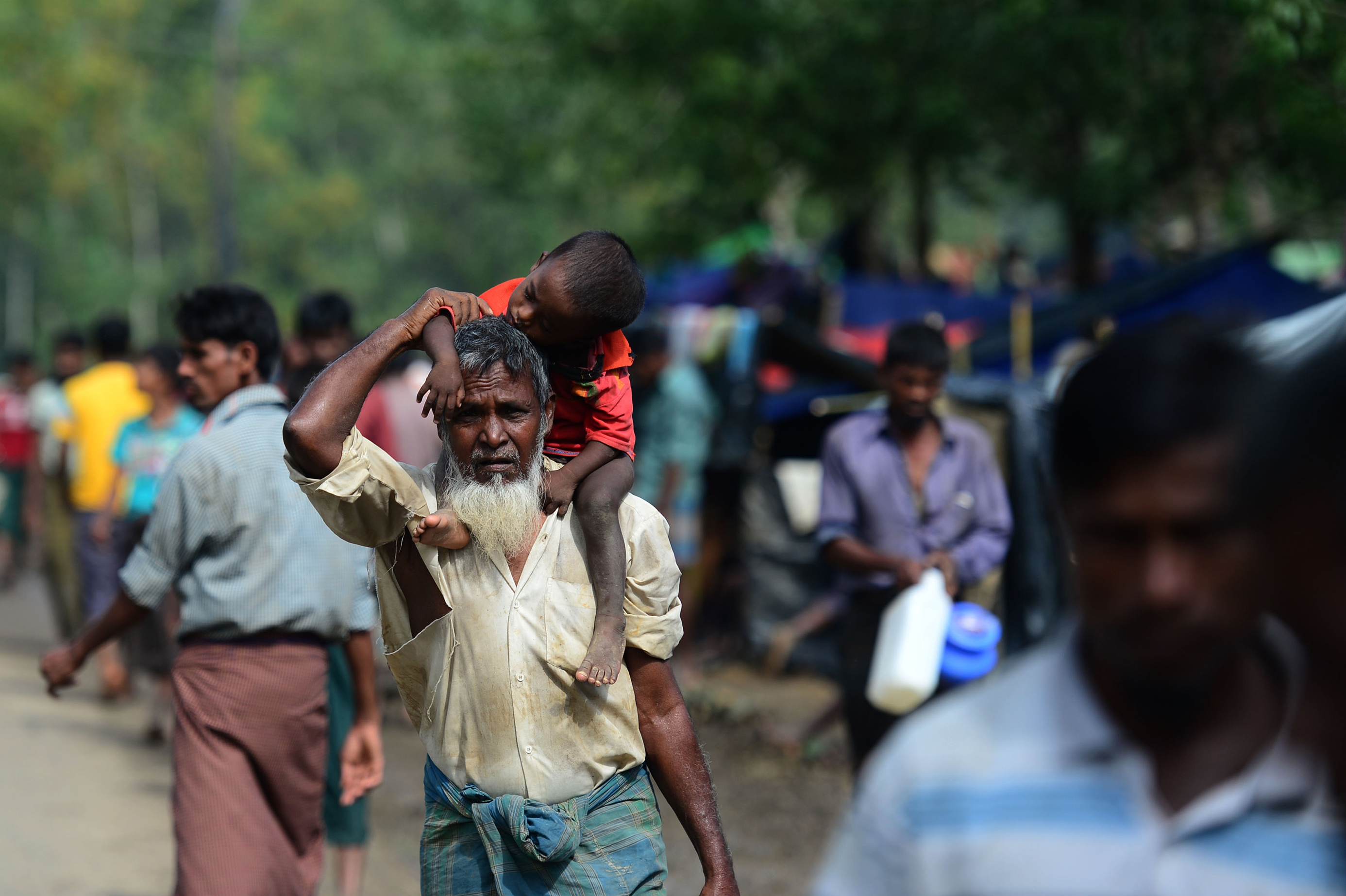The Muslim minority Rohingya people continue to flee their homes in the northern Rakhine State of Myanmar to neighbouring Bangladesh for fear of continued persecution by their Buddhist majority government and military.
According to the latest numbers released by AFP, 422,000 stateless refugees have fled the conflict zone since the recent spate of violence started on the August 25 to overcrowded camps along the border between Bangladesh and Myanmar.
Many risked their lives by making the difficult journey across Ghumdum, Tombru at the Chittagong Hill Tract which lies approximately 35 kilometres from the conflict zone, having to crawl through fences that are separating both nations. This would be the first place these refugees crossed – others have also made the perilous trip by attempting to swim across the Naf River towards Cox's Bazar in Bangladesh which has resulted in the drowning of over 100 refuges, including women and children.
The mud slicked area is strewn with rubbish and the absence of latrines means human faeces and filthy water just flow freely in the slum-like camps. The MSF (Doctors Without Borders) was quoted by AFP saying that poor sanitary conditions are pushing the refugee camps to the brink of a health disaster.
Emergency coordinator Robert Onus told the news agency that “One small event could lead to an outbreak that may be the tipping point between a crisis and a catastrophe.”
Dhaka also confirmed that it has treated 2,350 refugees for serious injuries sustained during the outbreak of violence by the Tatmadaw (Myanmar military), including bullet and machete wounds and trauma sustained from landmines. Bangladeshi officials have recently criticised the Tatmadaw for mining the border – a claim that they denied.
Humanitarian assistance is an ongoing necessity for the poor and conflict-ridden Rakhine State. Many ethnic Rakhine feel that foreign aid agencies are biased towards the Muslim minority and often disregarded their plights.
AFP reported on Thursday that a 300-strong mob in the Buddhist-majority state capital Sittwe massed late Wednesday at a jetty where an ICRC (International Committee of the Red Cross) boat carrying 50 tonnes of relief materials was preparing to depart to the conflict areas. They forced the ICRC to unload the aid and prevented the vessel from leaving.
The crisis in Rohingya has been an ongoing issue for several decades but the situation is only getting from bad to worse. Myanmar’s de facto leader, Aung San Suu Kyi recently condemned “all human rights violations and unlawful violence” but the speech has done little to renew confidence that the Nobel Peace Prize laureate would bring an end to this misery. Until then, thousands of refugees will continue to suffer as the days go by.
